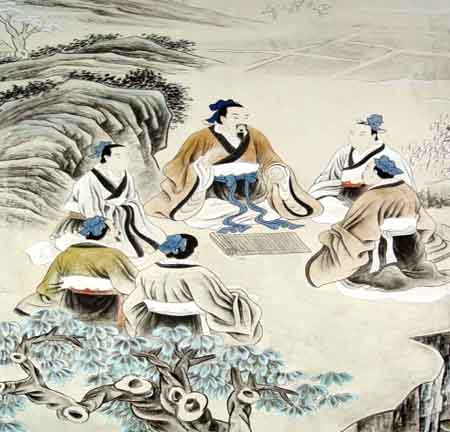
The doctrines of Mohism are to be found in the work Mo-tzu, named after the founder of the Moist tradition Mo Tse (c. 470-390 BCE). Although attributed to Mo Tse, the Mo-tzu was probably composed over a number of generations by Mo Tse's disciples. The Mo-tzu originally consisted of 71 chapters, but 16 of these have been lost.
Universal love. In contrast to the Confucians, who taught that devotion was particularly due to one's family, Moism prescribed equal love for all people.
Opposition to offensive war. Mo Tse opposed all forms of aggressive action, particularly in the form of large states attacking smaller ones. He did, however, accept that it was legitimate to use force to defend those who are being attacked.
Opposition to music. Mo Tse regarded music as a source of extravagance, associating it with dance, flamboyance and a waste of public resources, which could be used to feed, shelter and protect people.
Opposition to elaborate funerals. Funerals were excessively expensive and the time of mourning excessively lengthy.
Divine retribution. Mo Tse believed that heaven is a personal force, which knows of the misdeeds that people perform and punishes people for them. Such a belief serves to encourage people to conduct themselves morally.
Government. Unlike Confucius, Mo-tzu did not accept the tradition that emperors derive their mandate from heaven; instead the position of the emperor should be based solely on merit. While the emperor should be obeyed, people have the right to criticize the emperor if his actions are not in accord with the will of heaven.